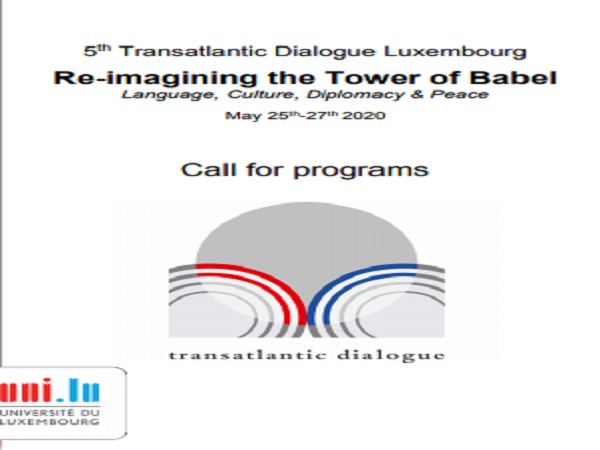
The University of Luxembourg is organising its 5th Transatlantic Dialogue conference on "Re-imagining the Tower of Babel: Language, Culture, Diplomacy & Peace" from 25-27 May 2020.
The Transatlantic Dialogue conference series on global citizens, held in Luxembourg since 2008, explores the significance of culture and liberal education for fostering global citizenship from both US and European perspectives.
The 2014 edition saw Dr Elizabeth Minnich, Senior Scholar for the Association of American Colleges and Universities, assess the contribution of culture to our development as social beings on a global scale. She noted how contexts into which we are born may be both endowed with meaning, as well as deciphered, through our practice of culture.
The 2020 edition of Transatlantic Dialogue aims to explore the complexities of human communication and develop our skills at engaging with them. By channelling discussion around three main areas of focus, it will encourage participants to reflect on contemporary patterns of communication and the way they shape, hinder and enable more meaningful relationships. Taking the lead from the historical, literary and spiritual layers of representation and interpretation of culture supplied by the powerful image of the Tower of Babel, these three focus areas are: languages and cultures, the practice of cultural diplomacy and the pursuit of peace.
In this context, three overarching questions will be examined: how are languages and cultures enablers of and barriers to communication within and across cultures?; in what ways can we serve today as cultural diplomats within our personal and professional lives?; in what ways can we promote inner peace and peace within, between and among communities?
Participants will be asked to consider personal, local and global perspectives on pursuing peace and to discuss the practice of peace processes regarding the principles of compassion, empathy and civility. A key component underlying and inspiring conversations will be trust. Participants will similarly be encouraged to engage with openness, honesty, vulnerability, reliability, competence and benevolence as we reflect on these concepts across the conference.
The main learning outcomes of this conference will be to increase participants' understanding of their roles and personal identities in contributing to global communities, imagine communities that can achieve successful cultural cohesion to overcome the divisiveness of nationalism, develop skills to engage in cross-cultural communication through arts and technology and promote inner peace and peace within and between communities.
Interdisciplinary keynote speeches, plenary sessions, roundtable discussions, panels, creative ateliers and social encounters including a cultural and leisure programme will provide the venue spaces to share and discuss possibilities and strategies for translating notions of languages and cultures, cultural diplomacy and peace into action.








